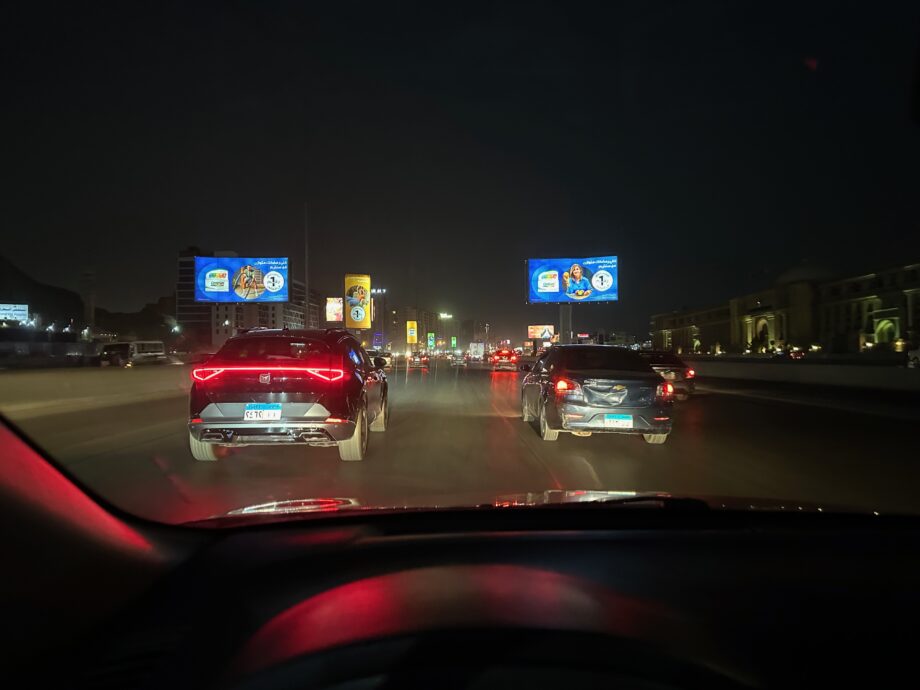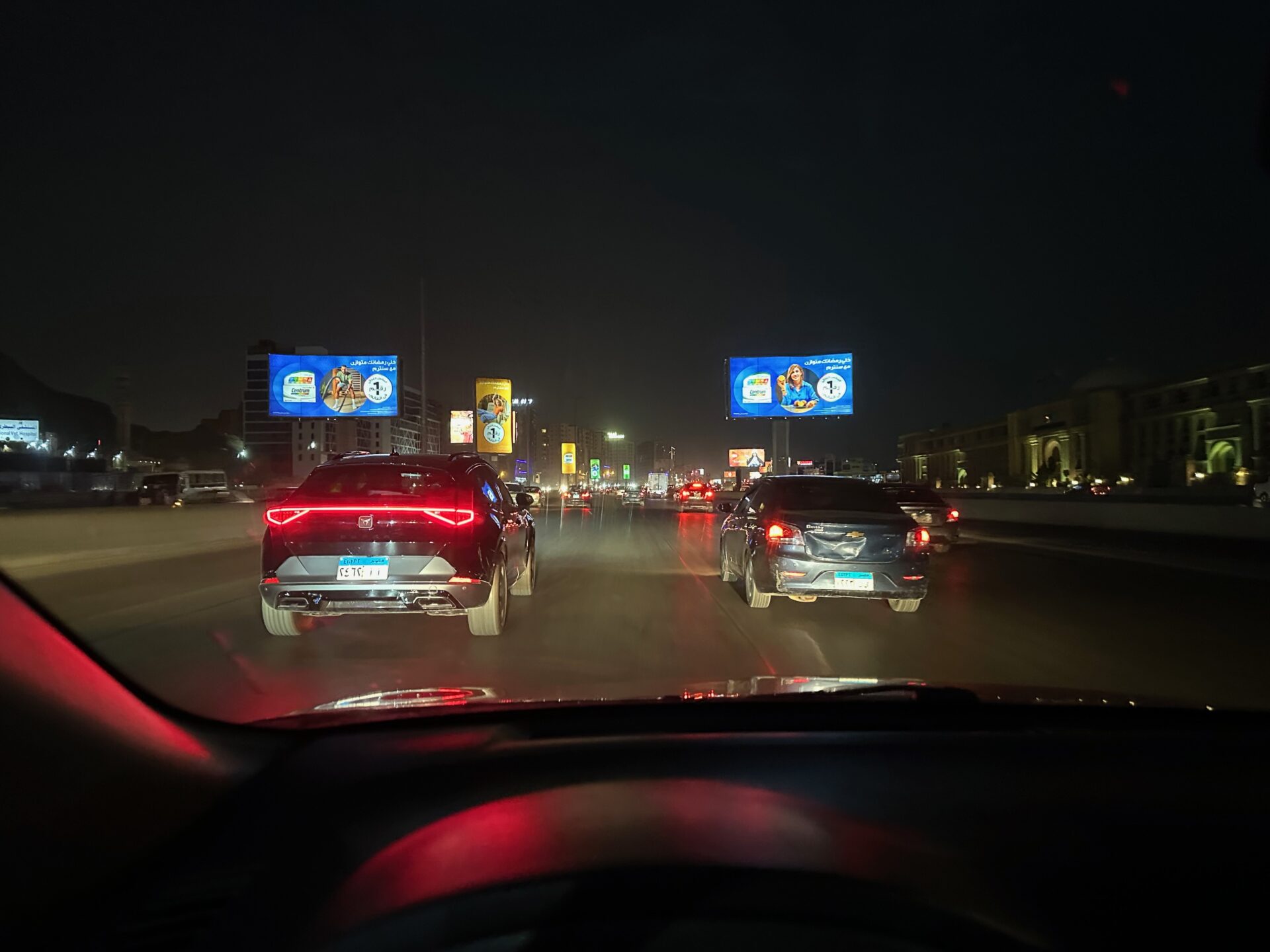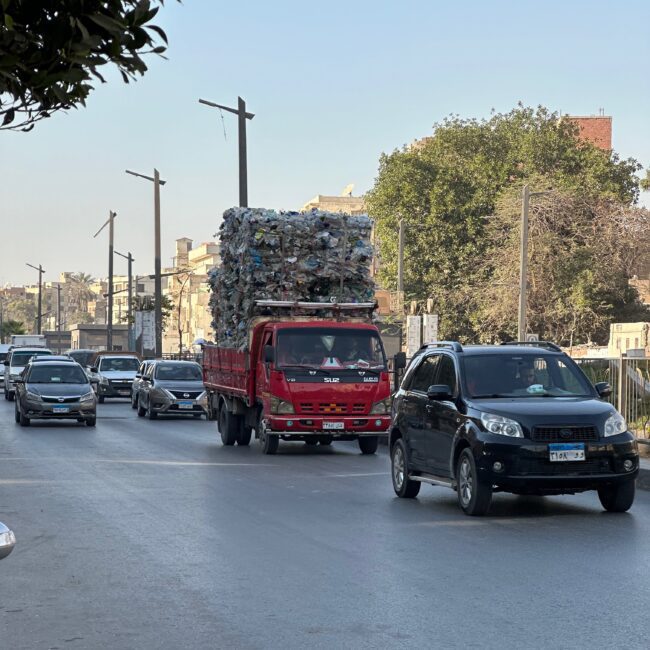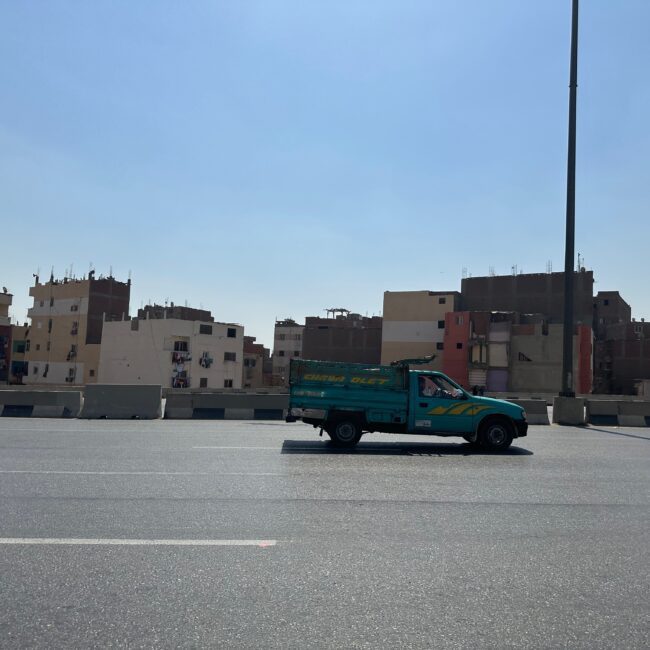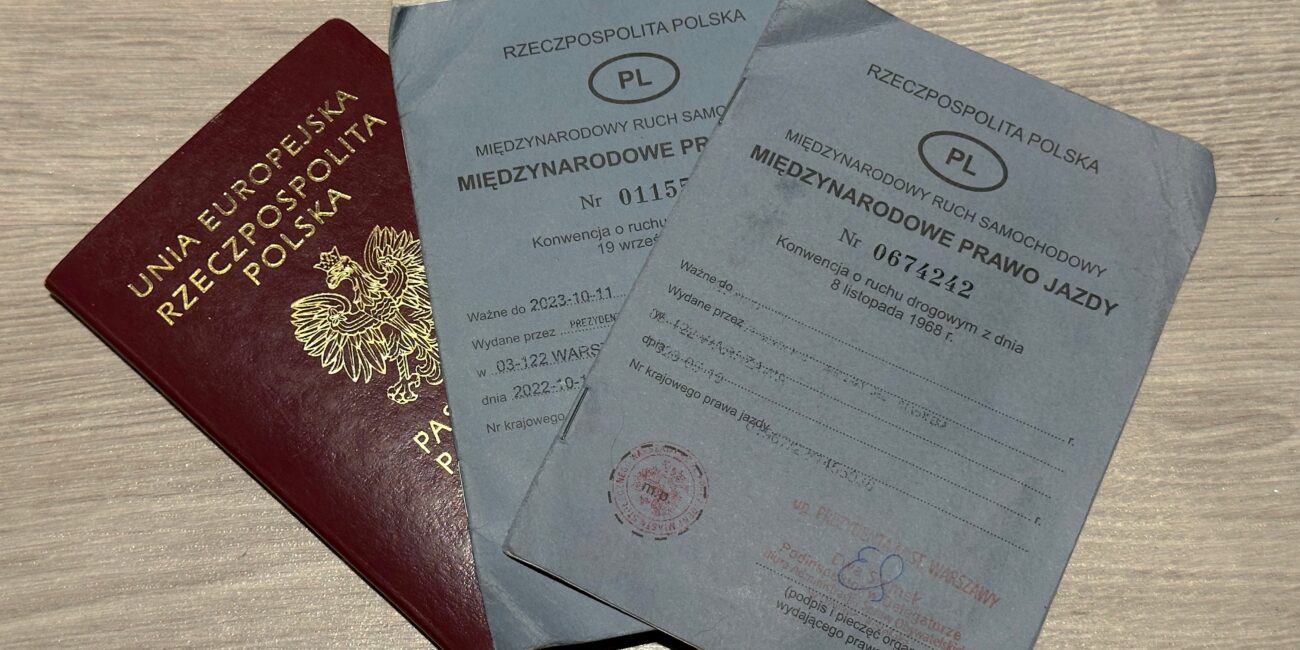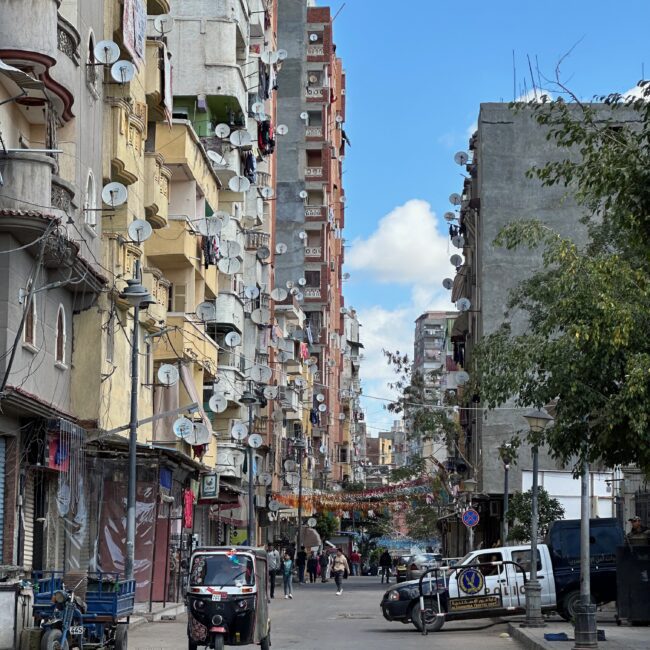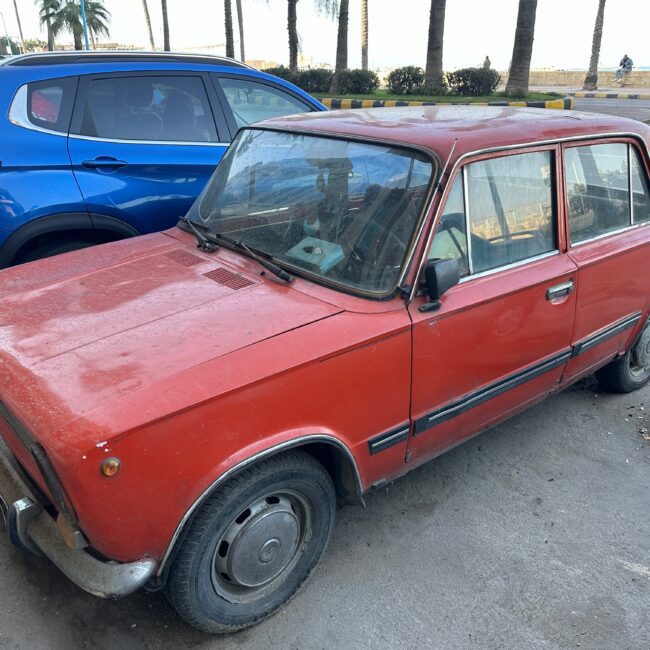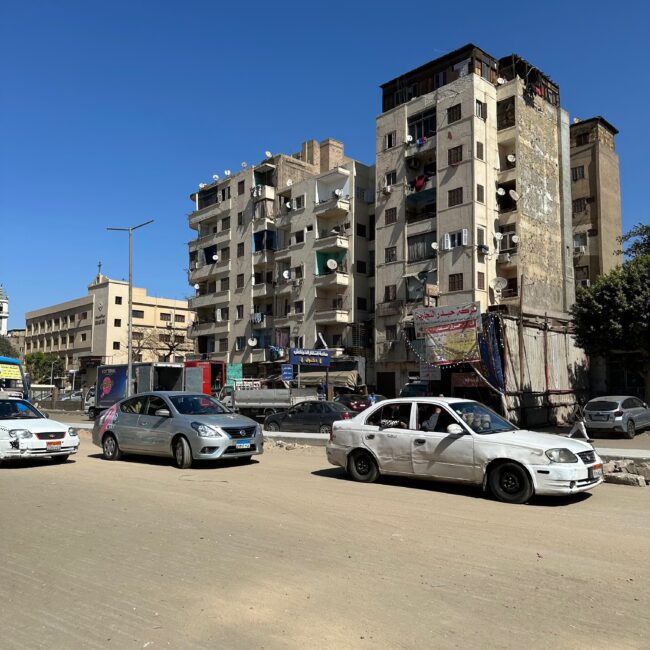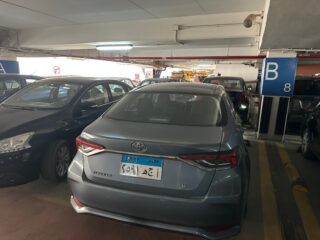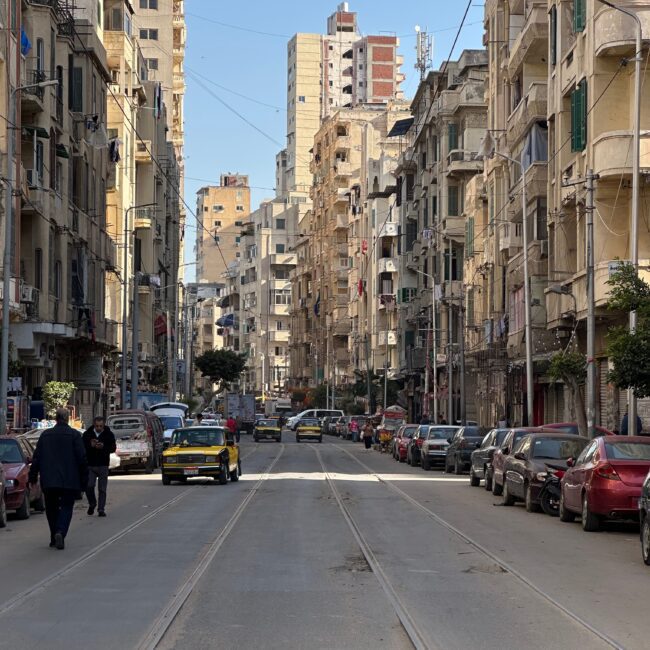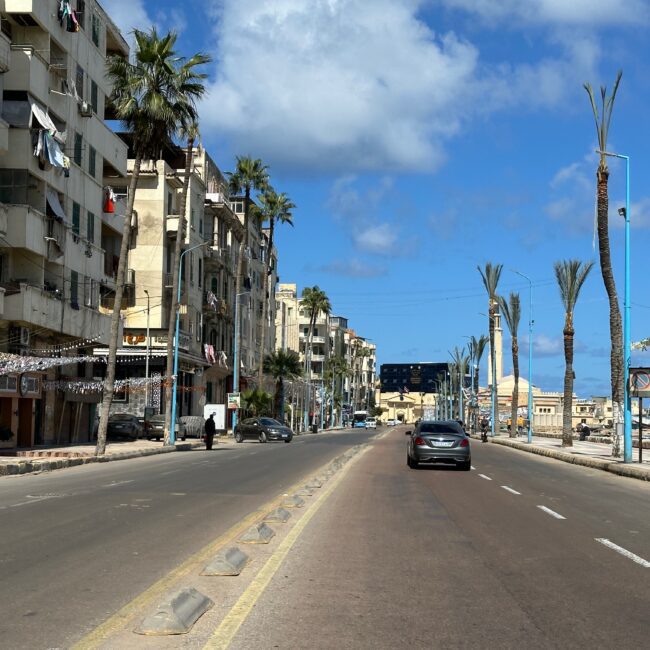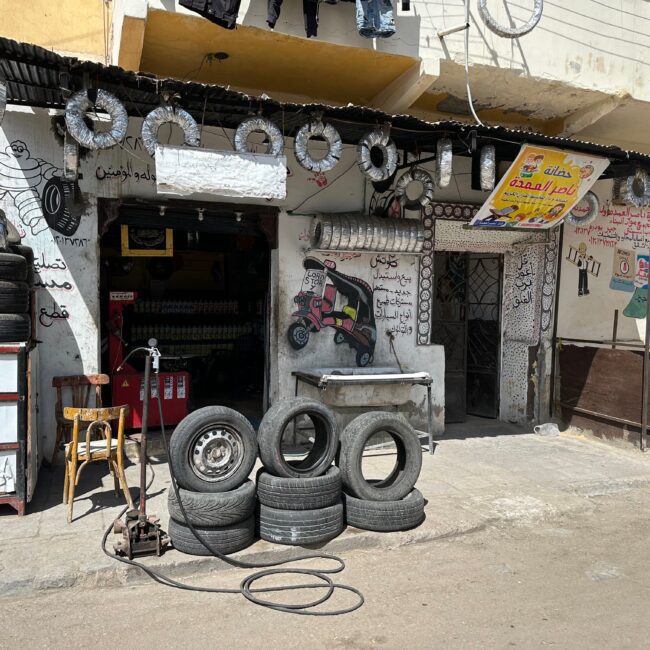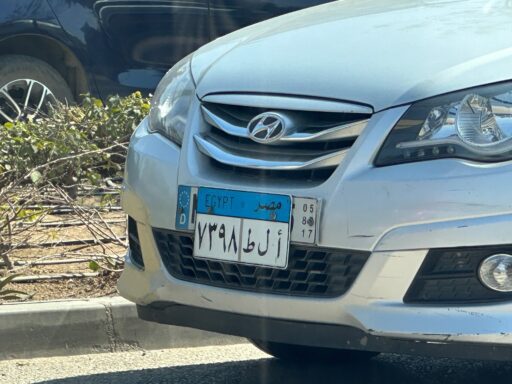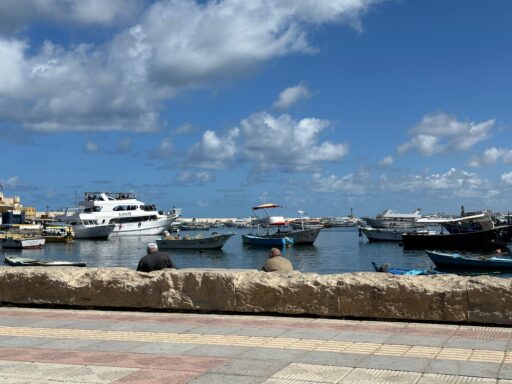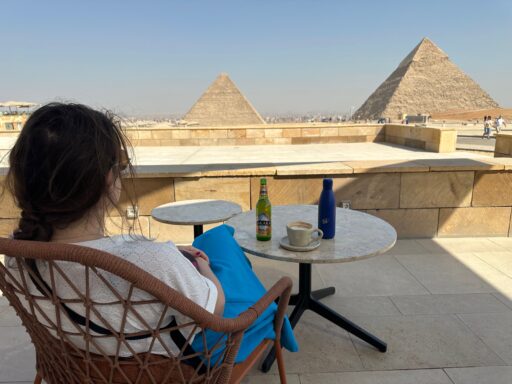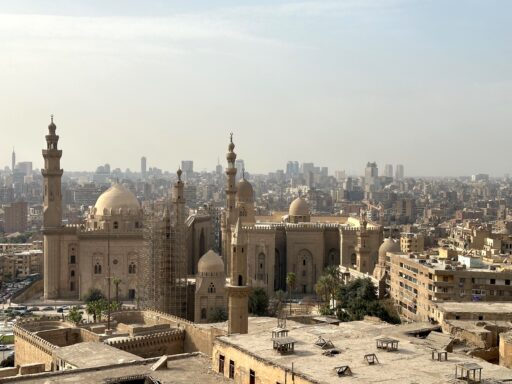This post is also available in:
Polski
Hello! 👋
Renting a car in Egypt may seem like a great option for people who want to explore the country on their own. However, the reality on Egyptian roads can quickly temper that enthusiasm. What initially looks like convenience often turns into a challenge, especially if you are unprepared for local road customs and the specifics of renting a vehicle.
In the article, we share our experiences, starting with choosing the right rental company, through the formalities of renting, to practical tips for navigating Egyptian roads, which differ significantly from European standards. Driving in Egypt requires care and the ability to react quickly to the unpredictable behavior of other drivers. Knowledge of local traffic regulations, such as speed limits, the obligation to wear seat belts and the use of horns as a form of communication, is crucial.
If you are planning to rent a car in Egypt, read our tips to avoid common pitfalls and feel more confident behind the wheel in this challenging country.
What was our journey like?
If you’re interested in the details of our March 2024 Egypt trip, be sure to check out our story here ✈️! There we describe what we were able to see in Cairo and the Giza area ️🏜️ – from the pyramids to lesser-known places to visit. Click here to read our article: What we saw in Cairo and Giza.
We also visited Alexandria, a city full of history 📜 and exceptional views 🌊 . If you want to know more about our impressions of this coastal city, be sure to check out our report: What we saw in Alexandria.
Requirements for traveling in the country
To travel around Egypt in a rental car, you need to meet a few key requirements and have the right documents:
- Passport – The driver must have a valid passport not only to enter Egypt, but also to rent a car. In most cases, car rental companies require that the passport be valid for at least six months from the intended date of departure from the country.
- Visa – Before entering Egypt, it is necessary to obtain a tourist visa. It can be obtained online using the eVisa system.
- Driver’s license – To drive on a foreign license, you need an International Driving Permit (IDP) issued in accordance with the 1949 Geneva Convention. In some cases, companies may only recognize an international document, so it’s a good idea to make sure you have it with you. In addition, your domestic driver’s license must be valid for the duration of the rental.
- Credit Card – Most car rental companies in Egypt require a credit card to secure a rental. Rental companies block the deposit on the card, and the amount is returned when the vehicle is returned undamaged. Before renting, make sure the limit on your card allows you to block the appropriate amount. Many companies do not accept debit cards, so a credit card is essential to rent a car.
- Minimum age – 18 years old. However, most car rental companies require the driver to be at least 21 years old, and some may have a higher age limit (e.g., 25), especially for larger or luxury rental vehicles.
International driving license – how to apply for it?
If you plan to rent a car in Egypt, an International Driving Permit (IDP) will be an essential document. Polish citizens can obtain this document by submitting an application to the communications department with jurisdiction over their place of residence, such as a city or county office. Application forms are available on the offices’ websites, and the procedure itself usually requires a personal visit to the office. It’s a good idea to make sure you have all the required documents with you, including:
- Completed IDP application,
- Actual photo,
- Valid Polish driver’s license,
- Proof of payment
More information can be found on government and municipal websites:
If you plan to travel to Egypt, make sure you have the proper International Driving Permit (IDP) to legally rent a car and drive. It is important to understand that there are two different conventions governing IDPs: the 1949 Geneva Convention and the 1968 Vienna Convention. Not all countries accept both types of IDP.
In Egypt, mainly the International Driving Permit (IDP) issued under the 1949 Geneva Convention is accepted. Although some car rental companies may also honor IDPs that conform to the 1968 Vienna Convention, a problem may arise during a roadside inspection. Traffic police in Egypt may require a specific type of IDP that complies with the Geneva Convention, so it’s important to make sure you have the right document before traveling.
Check the local regulations in your country and make sure you have both a valid national driver’s license and IDP to legally rent a car and drive in Egypt. For more information: internationaldrivingpermit.org
Where to rent a car in Egypt?
In Egypt, cars can be rented in many locations, especially at airports and in city centers such as Cairo, Alexandria and Hurghada. Popular international car rental companies such as Avis, Hertz, Budget, Sixt and Europcar are widely available in major cities and airports. There are also local companies that can offer competitive prices, although their service standards can vary.
In our experience, the most convenient place to rent a car is at airports. By booking online in advance, you are assured that your chosen model will be available upon arrival, and you can avoid higher last minute prices. We usually book on sites such as Economy Car Rentals, where you can compare prices from different companies and choose the best option.
What costs are involved?
The cost of renting a car in Egypt can vary depending on several factors. Here are approximate costs to look out for:
- Small cars: from about $13-23 per day depending on location.
- Economy cars: an average of $15-20 per day.
- SUVs: from about $39 per day.
- Luxury vehicles: can cost from $83 per day or more.
Our rental of an economy car (five-door) for 7 days came out to about 440 PLN. In addition to the basic rental price, it is worth keeping in mind the additional fees that may apply:
- Insurance: Basic insurance is usually included in the rental price, but full coverage (such as against theft or damage) may incur additional costs.
- Deposit: Many companies block a deposit on a credit card, which is returned when the car is returned undamaged.
- Additional Driver: Adding another driver to the rental agreement may require an additional fee.
- Accessories: Renting GPS, child seats, or other equipment involves additional costs.
- Airport fees: airport rentals can come with additional administrative fees. For the most part, our bookings already included potential airport fees in the rental price, and renting a car in the city can be more expensive than at the airport.
Fuel
They are available in several varieties, and the most popular are gasoline with different octane levels and diesel. As of October 2024, fuel prices are as follows:
- 95-octane gasoline: costs EGP 15 per liter. This is the highest quality gasoline that is suitable for more modern engines and cars.
- 92-octane gasoline: the price is EGP 13.75 per liter. It is a popular choice among drivers.
- 80-octane gasoline: this cheapest fuel option costs EGP 12.25 per liter (about PLN 1.60), but is mainly used by older vehicles. However, it is worth noting that gasoline with such a low octane number is not suitable for modern cars, which require a higher octane number.
- Diesel in Egypt is mainly used in trucks, buses and construction machinery, and is priced at EGP 11.50 per liter.
Road tolls
Tolls are found on several key routes, especially those connecting major cities and tourist destinations:
- Cairo-Alexandria Highway: This road of about 220 kilometers has a toll of EGP 10 for cars. It is one of the busiest routes, connecting the capital with Alexandria.
- Cairo-Ain Sokhna Road: This highway leading to the Red Sea has a similar toll of EGP 10 per trip as well.
On major routes, fees are relatively low, making travel affordable. It is important to carry cash, as card payments are often impossible at the gates. For example, leaving Alexandria, you will find an ATM near the gates, which allows you to withdraw cash on the spot. However, in order to reach it, you may have to make some unusual maneuvers on the road, such as driving against traffic. Still, the situation is usually not too dangerous – although it does require caution and reflexes!
Insurance
Under most car rentals in Egypt, basic insurance (CDW – Collision Damage Waiver) is already included in the price. It covers liability for collision damage, but there is often a deductible, which is the amount the driver must pay out of pocket in the event of damage.
In some cases, coverage can be extended by purchasing additional insurance on the portal where we book the car, or directly from the rental company. However, it is worth being careful, as some companies will try to “force” this insurance on us, arguing, for example, potential vehicle breakdowns or other problems. Keep in mind that basic insurance is often sufficient, and additional policies may be unnecessary, especially if you already have coverage from other sources.
If you have travel insurance, a credit card with insurance, such as Revolut, N26, or travel insurance that covers the cost of a deposit in case of damage, buying additional insurance in most cases will not be necessary. It’s worth making sure your policy from these sources covers car rentals, which can save you unnecessary costs.
Travel insurance – the basis for safe travel
In addition to standard travel insurance, it is worth remembering a few important points. First of all, before any trip, especially to countries outside the European Union, you should read the recommendations of the Ministry of Foreign Affairs. It may turn out that in some regions of a country that are not recommended to visit by the Foreign Ministry, the insurance will not work. For this reason, it’s always a good idea to read the General Terms and Conditions of Insurance carefully to make sure your policy covers all the risks and regions you plan to visit.
Insurance is not only health protection – in many cases it also provides coverage for car rental or possible legal problems abroad. Therefore, to avoid unpleasant surprises, it is always advisable to have a full policy, tailored to the specifics of the country and your travel plans.
Road rules and regulations in Egypt
Regulations in Egypt can be very different from what we are used to in Europe, making driving in the country challenging, especially for those without driving experience in other regions of the world. Here are the most important aspects to look out for:
- Traffic: Right-handed, as in most countries around the world.
- Speed limits
- In cities: Usually 60 km/h, but in some places, especially in congested areas, it can be lower.
- Outside cities: 90 km/h on intercity roads and 100 km/h on highways.
- Speed cameras: Although speed cameras are less common than in Europe, they do occur, especially on major roads. The use of devices that interfere with their operation is strictly forbidden and risks fines or imprisonment
- Seat belts: Wearing a seat belt is theoretically mandatory, but in practice it is not always observed, especially in the back seats. In larger cities, traffic police may issue fines for unfastened belts, but enforcement of this regulation is sometimes inconsistent.
Reality on the road
- Chaotic traffic: Egyptian roads, especially in major cities, are notorious for chaotic traffic. Drivers often ignore lanes, traffic lights and priority rules. The horn is used almost constantly as a tool of communication on the road, which can be overwhelming for many.
- Driving at night: Avoid driving at night, especially outside cities. Many vehicles drive without lights, and street lighting is often inadequate. In addition, you may encounter unlit vehicles or pedestrians walking on the sides of the road.
- Traffic Signs and Signaling: While you may see traffic signs in English on the main roads in cities, they can be rare outside of them. Traffic signals (if there are any somewhere) are not always respected, so even with a green light, it is worth being alert.
- Checks and checkpoints: On major routes, especially between cities, you may occasionally encounter checkpoints where the police or military check documents. You should carry your passport, international driver’s license, and insurance and car rental documents.
- Priority on the road: In practice, priority rules are often not observed, and passing red lights or forcing priority is a fairly common occurrence.
- Condition of roads: The condition of roads in Egypt can sometimes vary. In larger cities and on highways, they can be relatively good, but roads in smaller towns and villages can sometimes be potholed, unpaved or full of obstacles such as unlit vehicles parked on the side of the road.
- Parking: In cities, finding a place to park can be difficult, and parking rules are quite loose. You often have to use private parking lots or pay someone to help you park (known as a parking attendant).
How to avoid extra fees and hidden costs?
To avoid unpleasant surprises when renting a car, it is worth paying attention to several key aspects:
- Online booking: make your reservation in advance online. This allows you to compare prices and get a thorough understanding of the rental terms, avoiding higher fees on the spot.
- Fuel policy: Always choose the “full to full” option. Returning with an incomplete tank incurs additional refueling fees, often much higher than the standard price at the station.
- Insurance deductibles: check the amount of the deductible that applies to basic insurance and whether additional insurance is really necessary. Beware of pressure from the rental company to purchase extended insurance if you have alternative coverage from other sources (such as a credit card).
- Return Conditions: Make sure you understand the rules for returning the vehicle, including the times and place of return. Minor delays may incur charges for an additional day of rental.
- Liability for damages: Make sure what damages are covered by insurance and what costs you may incur in the event of an accident. Some rental companies may try to shift liability to you for minor damages that are not your fault.
- Cancellation and change of reservation: Check the terms and conditions for cancellations and changes to reservations. In some cases, changes made close to the rental date may incur additional charges.
- Chargeback: If you encounter wrongful charges, it is worth remembering to use the chargeback procedure on your payment card. You can report the unauthorized transaction to the bank, which will process the chargeback.
Document the receipt and return of the car
To avoid unforeseen charges:
- Inspect the vehicle: Before taking delivery, inspect the car carefully, writing down any existing damage in a report.
- Take pictures: Document the exterior and interior condition of the car upon receipt and return, including fuel levels.
- Confirmation of return: Ask the rental company employee to confirm in writing that the car has been returned without new damage.
- Keep documents: Keep contracts, confirmations and photos as evidence if disputes arise.
Refueling the car
- Most often, two or three types of fuel are available – 95, 91 and 80-octane. Most passenger cars run on 91 and 95 gasoline.
- Most gas stations accept both cash and credit cards, but in smaller towns it is better to carry cash. Larger stations, especially along highways, offer card payments without a problem.
- At larger stations, especially along highways, there is usually an ATM nearby, which can save the situation if you find that card payment is not possible.
- At most stations, the staff fills up the fuel for you.
- Most gas stations operate 24 hours a day, especially those along major roads and highways, which is convenient for travelers.

